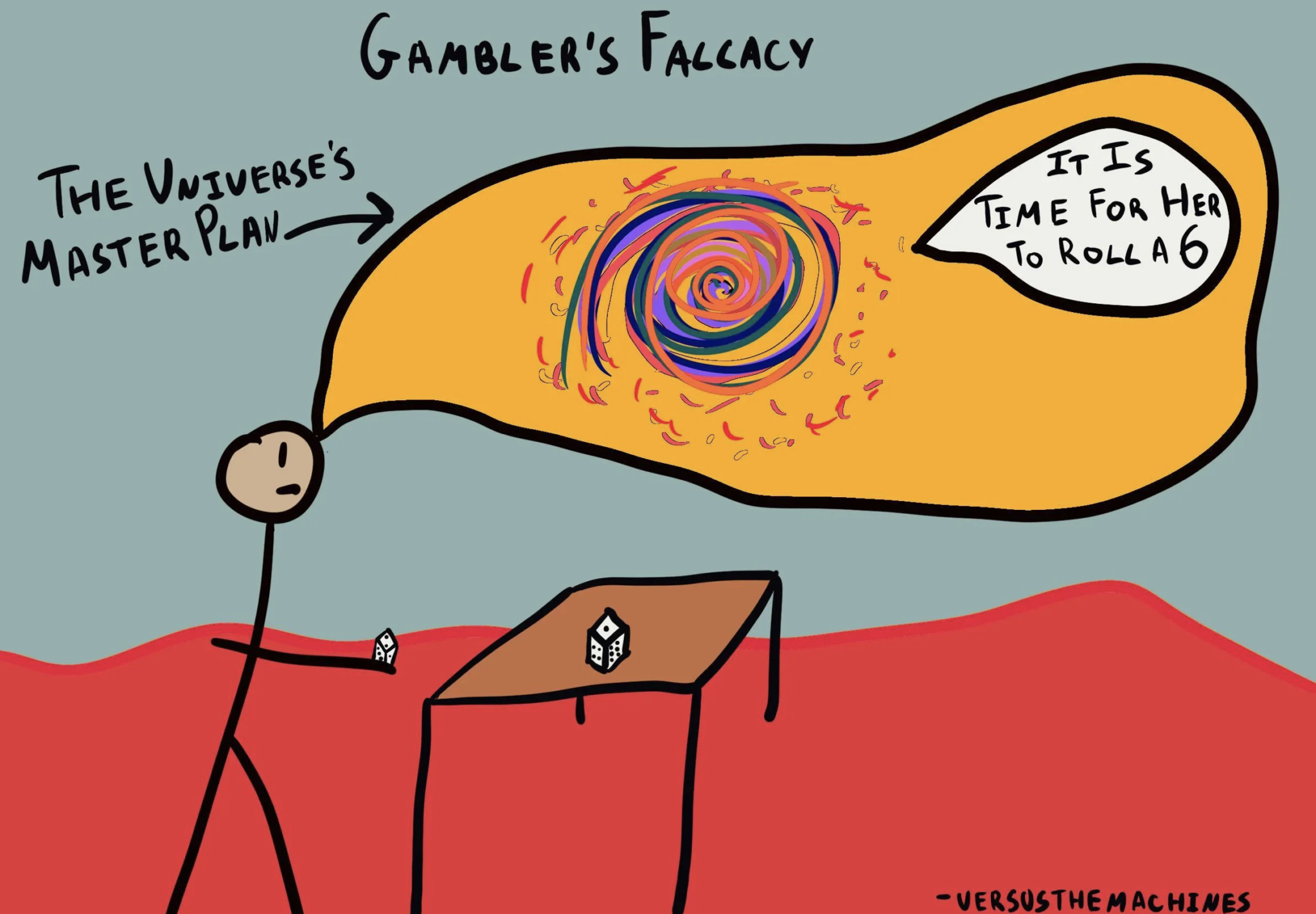The Gambler’s Fallacy is a cognitive bias that occurs when someone believes that the likelihood of a random event occurring is affected by previous independent events, despite the fact that the probability remains the same.
An example of the Gambler’s Fallacy is a person who plays roulette and sees that the ball has landed on black for the last ten spins. They may then incorrectly assume that the ball is more likely to land on red for the next spin because it “must be due” or “overdue” to land on red. However, each spin of the roulette wheel is an independent event, and the probability of landing on black or red remains the same for each spin.
In essence, the Gambler’s Fallacy is the mistaken belief that past independent events can somehow influence future independent events. This fallacy can lead people to make poor decisions, such as continuing to bet on a losing streak in the hopes that their luck will eventually turn around, even though the probability of winning remains the same.

